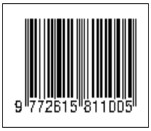EFEKTIVITAS PEMBELAJARAN MATEMATIKA MENGGUNAKAN SISTEM DARING
Abstract
Keywords
Full Text:
PDFReferences
Bates, T. (1997). The Impact of Technological Change on Open and Distance Learning. Distance Education.
Daryanto. (2011). Model Pembelajaran. Bandung: PT Sarana Tutorial Nurani Sejahtera
Handarini, O. I & Wulandari, S. S. (2020) Pembelajaran Daring Sebagai Upaya Study From Home (SFH) Selama Pandemi Covid 19. Jurnal Pendidikan Administrasi Perkantoran (JPAP). E-ISSN: 23389621. Vol. 8, No., 2020, hal (496 -503).
Kemmis, S & McTaggart, R. (1988). The Action Research Planner, 3rd Edition, Deakin University: Geelong.
Khan, B.H., (1997). Web Based Instruction, Educational Technology Publications. New Jersey: Englewood Cliffs.
Kusumah, Y. S. (2011). Aplikasi Teknologi Informasi dan Komunikasi dalam Pembelajaran Matematika untuk Meningkatkan Kemampuan Matematis Siswa. Disajikan dalam Kegiatan Pelatihan Aplikasi Teknologi dan Komunikasi dalam Pembelajaran Matematika di SPS UPI, 16 Desember 2011.
Ruseffendi, E.T. (2006). Pengantar Kepada Guru Mengembangkan Kompetensinya dalam Pengajaran Matematika Untuk Meningkatkan CBSA, Bandung: Tarsito.
Sloman, M. (2002). The E-learning Revolution How Technology is Driving a New Training Paradigm. New York: American Management Association (AMACOM).
Tung, Khoe Yao. (2000). Pendidikan dan Riset di Internet, Jakarta: Dinastindo, 2000.
DOI: https://doi.org/10.35327/gara.v15i1.203
Refbacks
- There are currently no refbacks.
Copyright (c) 2021 GANEC SWARA

This work is licensed under a Creative Commons Attribution-ShareAlike 4.0 International License.










